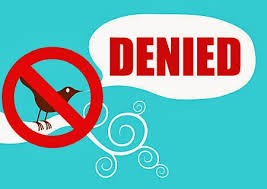The Do’s and Don’ts of Online Privacy
Take a moment to think about your internet usage: how often do you go online, how much potentially sensitive information do you send across the net, and how many of your regular sites use the same password? We are all guilty of lax security when online – of course, it will never happen to us – but the truth is we are automatically susceptible to the actions of less than scrupulous users who, for example, might like to have access to our banking details. So what can we do to enhance our online privacy?
Be Extra Careful All The Time
 Much of the advice regarding internet security is common sense: use a different, unique password for everything – not your birthday, or name – and use only sites that are secure. Do not give your password to anyone, and make sure your anti-virus protection is up to date. Use social networking sites with care: Facebook is great fun and very useful, but all too often people post data and pictures that give too much away. Make sure you have the right security features installed on those sites, also. Perhaps more than anything, you should invest in a VPN.
Much of the advice regarding internet security is common sense: use a different, unique password for everything – not your birthday, or name – and use only sites that are secure. Do not give your password to anyone, and make sure your anti-virus protection is up to date. Use social networking sites with care: Facebook is great fun and very useful, but all too often people post data and pictures that give too much away. Make sure you have the right security features installed on those sites, also. Perhaps more than anything, you should invest in a VPN.
Why a VPN?
A virtual private network, or VPN, is fast becoming the most popular method of enhancing online privacy and security. Not only do these services offer you the opportunity to bypass geo-restrictions on content in some countries, but they also encrypt all your information and give you complete anonymity when browsing. They work by diverting your information from your ISP providers servers to servers that are operated exclusively by the VPN operator, and the guarantees are worth the small payment they ask for.
Further Internet Privacy Tips
Another golden rule when considering internet security and privacy is this: never open a link, by email or otherwise, that you were not expecting to receive. This is a common method of implanting spyware or malware in your system, and should be avoided at all costs. If you are not sure about the origins of an email, delete. Generally, paying careful attention to security when online is the best way; if something looks suspicious, it probably is, and invest in the best VPN you can afford.
 The Chinese government is concerned at the way the internet allows users to access content that may be considered subversive, obscene, or that it simply considers to be not fit for the people. As social networking sites such as Twitter are largely a free chat forum, Chinese users could easily read comments that the government does not want it to see, either from anti-Chinese commentators or political adversaries. Wikipedia, and Google to an extent, are similarly censored.
The Chinese government is concerned at the way the internet allows users to access content that may be considered subversive, obscene, or that it simply considers to be not fit for the people. As social networking sites such as Twitter are largely a free chat forum, Chinese users could easily read comments that the government does not want it to see, either from anti-Chinese commentators or political adversaries. Wikipedia, and Google to an extent, are similarly censored. The Great Firewall uses, in general, standard DNS server programming to implement its purpose; anyone requesting information that is not permitted by the government run servers will find access denied. However, by using a virtual private network – VPN – which access content by a server that is beyond the firewall, in other words not within China, visitors can access the content they require. The
The Great Firewall uses, in general, standard DNS server programming to implement its purpose; anyone requesting information that is not permitted by the government run servers will find access denied. However, by using a virtual private network – VPN – which access content by a server that is beyond the firewall, in other words not within China, visitors can access the content they require. The  When you access the internet from school or university you will likely do so via the internal WiFi; this will use a designated server to access any information you request. It is this server that knows what to block as instructed, so you need to use a different server. This is what a VPN does; there are many such services with servers in different locations around the world, and by choosing one of these you are bypassing the restricted school server. It’s simple, effective and cheap, and it also has many other benefits.
When you access the internet from school or university you will likely do so via the internal WiFi; this will use a designated server to access any information you request. It is this server that knows what to block as instructed, so you need to use a different server. This is what a VPN does; there are many such services with servers in different locations around the world, and by choosing one of these you are bypassing the restricted school server. It’s simple, effective and cheap, and it also has many other benefits. A VPN, or virtual private network, has become one of the must-have services for travelers and those who want to enhance their online privacy. There are many such packages on the market – some free, and the more impressive with small fees to pay – and they work by bypassing the usual local servers that would normally be used to connect to the content you are searching for. By using a server in a non-restricted country or region you are able to access information that would usually be restricted in your location, and you can get your Sky Go content no problem!
A VPN, or virtual private network, has become one of the must-have services for travelers and those who want to enhance their online privacy. There are many such packages on the market – some free, and the more impressive with small fees to pay – and they work by bypassing the usual local servers that would normally be used to connect to the content you are searching for. By using a server in a non-restricted country or region you are able to access information that would usually be restricted in your location, and you can get your Sky Go content no problem!